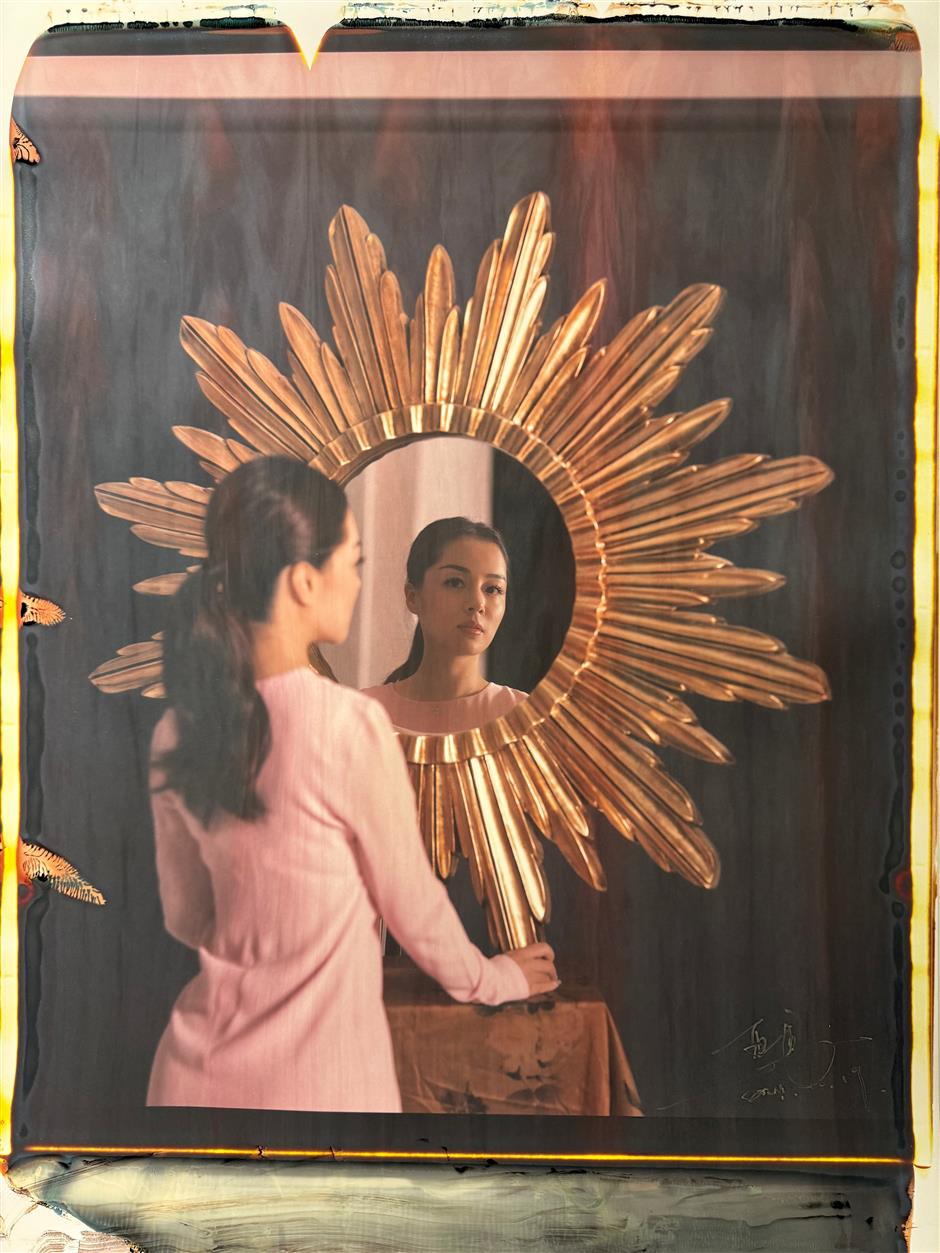
Kelly Wang, as photographed by artist Maleonn.
It is hard to define Kelly Wang, as she has held many different roles in her career.
Wang is a patron and board member of several international art museums. As a veteran collector of contemporary art, she will open her private art museum to the public soon.
She is also a publisher of Mook with East China Normal University, trustee of the Hong Kong Poetry Festival Foundation, and director and professor of the Department of Art Finance at the Shanghai Business College.
Her LIAN Cultural has been active in cultural and artistic fields over the past decade. Taking advantage of its incubation and external cooperation, the company has published more than 100 well-known intellectual properties, such as literary and artistic works, symbols, images, names, and designs, half of which are internationally recognized. These include the drama “Papa’s Time Machine” that won critical acclaim in many countries.
For the art season in Shanghai, Wang’s schedule is fully booked. Following her participation at the 10th International Business School Shanghai Conference, Wang will immediately move to the 20th Jazz Festival starting on November 4.
Shanghai Daily interviewed Wang recently and found that she has managed to walk a skillful balance between life and work, between the East and the West.

Kelly Wang stands on the stage of “Papa’s Time Machine.”
Q: As one of the few female leaders in the art industry, how do you balance your life and work?
A: Woman is a simple yet beautiful word. A woman can be a daughter, a mother, but more important, a her-self.
For me, a successful career demands all kinds of balances such as time, emotions, giving, and accepting. I could become a better version of myself everyday via my good will, gratitude, and all determined efforts. The world in your eyes actually mirrors a real you.
Q: You and your team have been deeply involved in the field of culture and art, contributing a lot in promoting Chinese culture to other countries, could you share some of your insights?
A: Chinese culture has a profound base, which is also open and inclusive.
When approaching any culture, you need to utterly open yourself. Embrace the world and be kind to others, thus you are able to find “the light and warmness” in different cultures.
LIAN Cultural has been committed to acquiring and supporting original Chinese intellectual properties to embark on the international stage. We have garnered a cluster of awards in our professional area.
I’m glad that Chinese culture is now playing an increasingly important role in the world.
Q: Could you introduce some of the highlights that you and your team are involved in the upcoming art seasons?
A: We have signed a long-term cooperation with the Antai College of Economics and Management of Shanghai Jiao Tong University. We brought a unique experience of Shanghai culture to 220 deans from 120 business schools around the world at the 10th International Business School Shanghai Conference this October.
This year also marks the 20th anniversary of the Shanghai Jazz Festival, and LIAN Cultural will support a series of performances shining with international jazz stars.
Q: You have been collecting contemporary art for more than a decade, and also supported and collaborated with many renowned artists both at home and abroad — who has had the strongest impact on you?
A: Every artist comes from his or her own cultural background with a different artistic philosophy, yet they all have the great passion and pursuit in art. Cross-cultural exchanges really broaden each other’s spiritual horizons.
Marina Abramović, the “Godmother of Performance Art,” has been a close friend of mine for many years. I clearly remember what she told me nine years ago: “I hope that more young people and students would participate in my exhibitions, as they are the future,” which inspired me greatly.
Q: Four years ago, the foundation of your private art museum was laid in the center of the city — how will you position this museum?
A: We will have a soft opening at the end of this year, and the museum will open to the public next year. Focusing on contemporary art, the museum will be a venue where people from different ages would find a beautiful space that they want to linger in.
In my eyes, an art museum would function for its social responsibility and the aesthetic education of the public.
Q: Besides your engagement in the field of culture and art, you are also keen on aesthetic education. You established a special fund for youth aesthetic education at the Shanghai Soong Ching Ling Foundation — what is your initiative?
A: I am a mum of twins. I accompany them with love every day as they grow up in their growing. I am fully aware of the critical importance of education.
One morning when driving them to school, I unwittingly saw, “You are following the leaders of the future” on the back of their school bus. I was so moved, and wanted to do as much as I can.
Under the advancement of globalization and technology, we have to keep up with the fast-paced changes. Cognition and aesthetic education are crucial for our young people, which will help enhance their cultural confidence, pass on the Chinese culture, and expand their international perspectives.
Q: What do you think is important trait for a good entrepreneur?
A: Integrity is the most important thing, and cognition determines the way of thinking.
Q: You have a busy daily schedule, so what moment or time period do you feel most relaxed?
A: Such a moment is just before I fall asleep. Sleeping actually repairs my body and mind.
